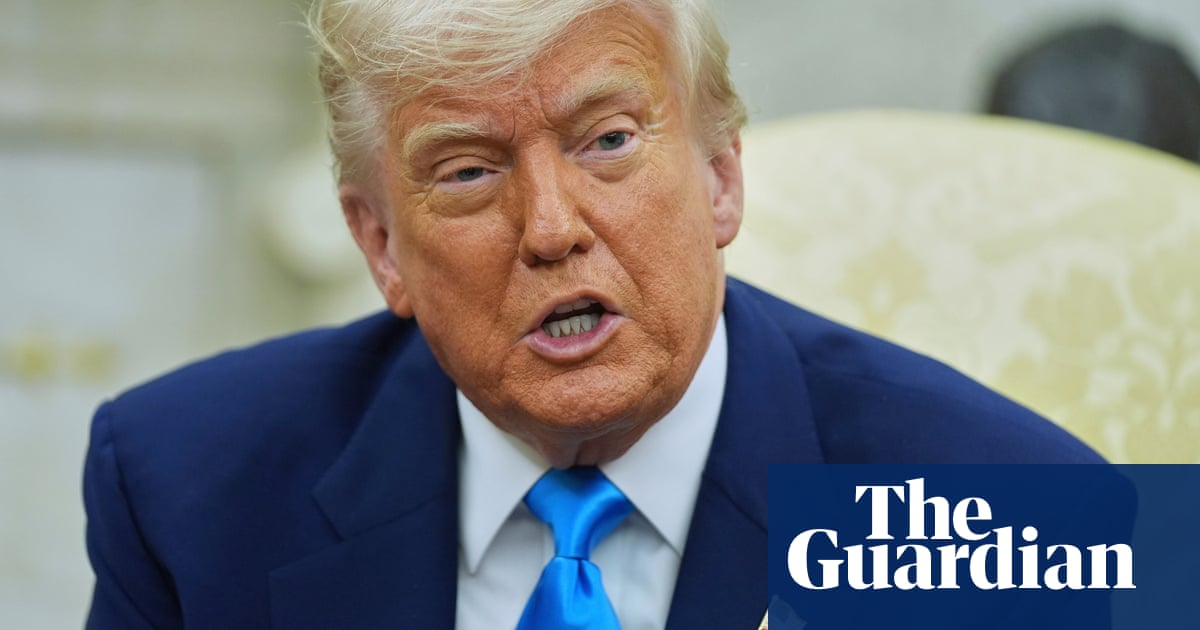AfterJoe Bidenrevealed his cancer diagnosis, Donald Trump offered an uncharacteristically empathetic and simple response.
“Melania and I are saddened to hear about Joe Biden’s recent medical diagnosis. We extend our warmest and best wishes to Jill and the family, and we wish Joe a fast and successful recovery,” Trumpwroteon social media.
But the compassion didn’t last long.
Trump soon reverted to type, dabbling in a burgeoning rightwing conspiracy theory about Biden’s health and comparing the former president, who has stage four prostate cancer, to a corpse, as Trump’s hangers-on and acolytes used the diagnosis to attack Biden and his wife.
Trump posted his well-wishing message on 18 May, afterBiden’s office announcedthe 82-year-old had been diagnosed with an “aggressive form” of prostate cancer that has spread to his bones.
The president’s tone changed quickly, however. Trump spent Memorial Day – which the Department of Defense describes as being intended to “honor all those who died in service to the US during peacetime and war”, attacking his one time rival and his time in office.
“Happy Memorial Day to all,” the presidentwroteon Truth Social.
“Including the scum that spent the last four years trying to destroy our country through warped radical left minds, who allowed 21,000,000 million people to illegally enter our country, many of them being criminals and the mentally insane, through an open border that only an incompetent president would approve, and through judges who are on a mission to keep murderers, drug dealers, rapists, gang members, and released prisoners from all over the world, in our country so they can rob, murder, and rape again – all protected by these USA hating judges who suffer from an ideology that is sick, and very dangerous for our country.”
It was clear that Trump’s “warmest and best wishes” to Biden had been firmly retracted, and that became even more transparent as Trump went on to promote an emerging, fact-free, theory that Biden hid the cancer diagnosis while in office.
“I’m surprised that the public wasn’t notified a long time ago because to get to stage nine, that’s a long time,” Trump said – seemingly conflating the Gleason score, which measures how cancerous cells look compared with normal cells, with Biden’s stage four cancer.
Trump’s comments hinted at the growing conspiracy theory about Biden’s alleged use of an “autopen” – a device which replicates a person’s signature – to sign legislation while in office. The president continued the theme when hesuggested thatBiden, while president, was taken advantage of by unnamed individuals who “knew he was cognitively impaired”.
It has been a growing issue on the right. This week Trump’s AI czar David Sacksspeculatedthat Elizabeth Warren, the Massachusetts senator, “controlled the autopen during that administration”, in comments seized upon by the rightwing conspiracy theory Alex Jones, among others.
That set the ball rolling. Trumptwiceposted about the pen, in one post heclaimedthat the alleged use of the autopen was “the Biggest Scandal in American History” as he suggested Biden was not of “sound mind”. On Thursday the White House press secretary Karoline Leavitt followed up in an official briefing,suggesting Jill Bidenshould “speak up about what she saw” about the health of her husband, who is said to be reviewing treatment options for the aggressive cancer that was discovered less than two weeks ago.
Others in Trump’s orbit have also made unsavory comments, including Donald Trump Jr, whomocked Jill Bidenover the diagnosis. Trump Jr posted on social media: “What I want to know is how did Dr Jill Biden miss stage five metastatic cancer or is this yet another coverup???”
It was a message that neatly managed to combine the autopen theory with a callback to Republican mocking of Jill Biden, who holds a doctorate in education and is not a medical doctor.
But for all the Republican group-think about Biden’s health, it was left to Trump himself to offer the bleakest take, reposting a message on Truth Socialthat read: “They stole the 2020 election and hijacked the country using a decrepit corpse as a frontman They used an autopen to start wars, steal from our treasury, and pardon their friends Arrest those responsible and charge them with TREASON.”
In late April, as Trump approached 100 days in office, NBC News reported that Trump had posted or commented on Biden, or his family, 580 at least 580 times since becoming president. With that little commitment, perhaps in hindsight it shouldn’t be surprising that a cancer diagnosis would not stop the commander-in-chief.
